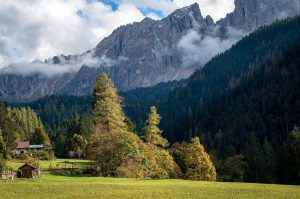What is Rural Tourism and Why Is It Growing in Popularity?
Rural tourism has witnessed significant growth in recent years, offering travelers the opportunity to escape the hustle and bustle of urban centers and immerse themselves in nature, local culture, and authentic experiences. But what exactly is this form of travel, and why is it gaining momentum? In this article, we explore the meaning of rural tourism, its benefits, and the reasons behind its rising popularity.
What is Rural Tourism?
The meaning of rural tourism, at its core, is travel experiences that take place in rural areas – where visitors can enjoy the tranquility, natural beauty, and unique cultural practices of these locations. Unlike mass tourism, which often centers around large cities and well-known landmarks, travel to rural destinations offers a more intimate, often off-the-beaten-path experience. This type of tourism can involve visiting farms, vineyards, nature reserves, and quaint villages, where travelers engage with the local community, participate in traditional activities, and learn about the area’s heritage.
In essence, rural tourism allows visitors to step into a slower, more relaxed pace of life while enjoying fresh air, stunning landscapes, and a sense of authenticity that’s often hard to find in crowded tourist spots.
Why is Rural Tourism Growing?
The rise in interest toward these destinations can be attributed to several factors. First, the global shift toward sustainable travel has made rural destinations more attractive. Tourists today are increasingly seeking eco-friendly options that support local communities and preserve the environment. Tourism in rural areas fits this desire perfectly, as it often involves smaller-scale, sustainable operations that are deeply connected to the land and its resources.
Another reason for the surge in interest is the desire for authentic experiences. Travelers are no longer just interested in sightseeing; they want to connect with the local culture, taste regional foods, and experience the day-to-day life of rural communities. This shift in travel preferences has fueled interest in destinations that offer unique, local experiences rather than cookie-cutter attractions found in cities.
Additionally, the COVID-19 pandemic played a significant role in the growth of rural getaways. With travel restrictions and concerns about overcrowded areas, many people turned to rural areas for a safer, more secluded getaway. The appeal of open spaces, outdoor activities, and fewer crowds made rural destinations ideal during the pandemic, and this trend has continued even as restrictions ease.
Advantages of Rural Tourism
Tourism in rural areas offers numerous benefits for both travelers and the destinations they visit. For travelers, it provides a refreshing break from the fast-paced urban life. Visitors can enjoy serene landscapes, take part in outdoor activities like hiking or cycling, and relax in peaceful surroundings. This type of tourism offers a perfect opportunity for those seeking rest, relaxation, and a deeper connection with nature.
For the rural communities that host tourists, such travel brings important economic benefits. Tourism in rural areas often supports local businesses, such as family-owned farms, craft shops, and small hotels. By attracting visitors, rural tourism helps generate income, create jobs, and promote the local economy. This is especially important for regions that might otherwise face economic challenges due to limited industries or job opportunities.
Furthermore, rural destinations often focus on environmentally friendly operations, such as organic farming, renewable energy use, and waste reduction. By supporting these businesses, travelers contribute to the preservation of the natural environment while enjoying unique experiences.
Types of Rural Tourism Experiences
This style of tourism offers a diverse array of experiences suited to various interests. Here are some of the most popular types:
- Agri-Tourism: Farm stays, vineyard tours, and agricultural workshops allow visitors to learn about farming, production methods, and sustainability. This experience is ideal for travelers interested in hands-on activities and understanding the agricultural process.
- Eco-Tourism: Focused on preserving the natural environment, eco-tourism offers travelers the chance to visit national parks, wildlife sanctuaries, and nature reserves. This type of tourism promotes environmental conservation and helps visitors connect with nature in meaningful ways.
- Cultural Tourism: Rural areas are often rich in tradition and culture. Through cultural tourism, visitors can experience local festivals, artisanal crafts, folk music, and regional cuisine. These experiences allow travelers to immerse themselves in the authentic lifestyles of rural communities.
Each of these travel experiences provides a unique way for travelers to connect with the land, culture, and people in rural areas, fostering deeper, more meaningful travel experiences.
How Rural Tourism Benefits Rural Areas
This style of tourism is a win-win for both tourists and rural communities. For travelers, it offers a chance to explore lesser-known destinations, uncover hidden gems, and experience authentic local culture. For rural communities, tourism can provide an economic boost by attracting visitors who spend money on accommodation, food, and activities. This can be especially important in regions that rely on agriculture or small-scale industries, as it diversifies their income sources.
Additionally, tourism in rural areas can help promote environmental sustainability. Many rural areas depend on their natural landscapes and wildlife to attract visitors, so there is a strong incentive to preserve these resources. Sustainable tourism practices, such as eco-friendly accommodations, farm-to-table dining, and conservation initiatives, help ensure that rural areas can continue to benefit from tourism without compromising their long-term viability.
Final Thoughts..
In conclusion, rural tourism is a growing trend that offers both travelers and rural communities a chance to experience something truly unique. Whether it’s the opportunity to reconnect with nature, immerse oneself in local culture, or support sustainable practices, this type of travel provides valuable benefits on all sides. As more people seek authentic and sustainable travel experiences, the popularity of rural destinations is likely to continue its upward trajectory.
So, if you’re looking for a getaway that combines relaxation, adventure, and culture, rural travel might just be the perfect choice for your next trip.


